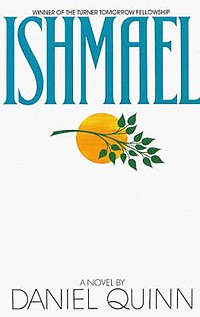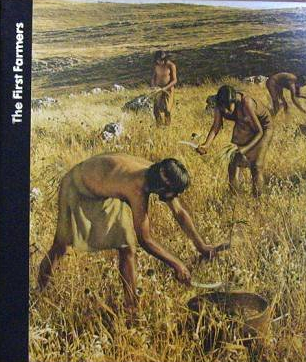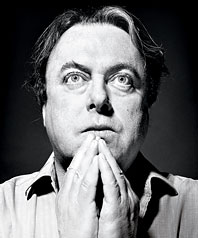I found myself watching a bunch of Christopher Hitchens YouTube clips last night and I became very sad about his death. This happens to me from time to time, where I become sad about an already dead person’s death from watching YouTube: Bill Hicks, Steve Jobs, John Lennon, MLK, JFK …. Not only was Hitch unparalleled in his intellectual fortitude, and his ability to call upon seemingly endless historical examples with incredible detail, he was also singularly eloquent with a velveteen voice like that actor I always try to think of … Alan Rickman. Hitch’s voice is just as soothing, but powered by a transcendent intellect. Aside from the great loss of this singular voice, I was sad for another reason.
I kept thinking about how lonely and terrified he must have been in his death. I know everyone who dies of a terminal illness must have to deal with some tremendous fear along the way ( I actually don’t know this, I assume), but most people can find some solace in their faith or beliefs when staring down the uncertainty of death. For most there is some kind of succor in the faith or hope that this is not the end and that perhaps there is something else, or even something better. But for Hitch he didn’t have that.
 In Daniel Quinn’s Ishmael there is a very interesting explanation of the biblical story of the “fruit of the knowledge of good and evil". Having been raised Catholic I never understood this story. I never understood why God would punish his people for wanting to know the difference between good and evil, or its nature, or whatever else that fruit was supposed to tell us. Nor did I understand how people were supposed to know right from wrong if we didn’t know the difference between good and evil. I just could never understand that story or what it was supposed to explain.
In Daniel Quinn’s Ishmael there is a very interesting explanation of the biblical story of the “fruit of the knowledge of good and evil". Having been raised Catholic I never understood this story. I never understood why God would punish his people for wanting to know the difference between good and evil, or its nature, or whatever else that fruit was supposed to tell us. Nor did I understand how people were supposed to know right from wrong if we didn’t know the difference between good and evil. I just could never understand that story or what it was supposed to explain.
Ishmael explains the story of the “fruit of knowledge of good and evil" not as a story that explains original sin or the need to be forgiven or the reason for Jesus’ crucifixion or anything like that, the story is actually about the sins of civilization.
 The fruit story was a story that came from the oral history of nomadic tribes. When the nomads saw “civilized" people farming in the fertile crescent and working so hard for their food, they had to create this fable to explain why any people would settle and work rather than wander and reap the fruits of the land. Why weren’t they just living off the land? The nomadic people reasoned that civilized people must have angered God by eating a forbidden fruit. As the story goes, God cast out these people from “paradise", which was the reality of a free wandering existence, and banished them to a life of toil and misery.
The fruit story was a story that came from the oral history of nomadic tribes. When the nomads saw “civilized" people farming in the fertile crescent and working so hard for their food, they had to create this fable to explain why any people would settle and work rather than wander and reap the fruits of the land. Why weren’t they just living off the land? The nomadic people reasoned that civilized people must have angered God by eating a forbidden fruit. As the story goes, God cast out these people from “paradise", which was the reality of a free wandering existence, and banished them to a life of toil and misery.
The knowledge of good and evil, is one of the most ironic stories Judeo-
Christians tell themselves. They tell it to themselves as a “woe is me" tale, that absolves the of their innate folly and flaws. It’s as if to say “yeah, we’re born imperfect, but we can’t help it. It just goes back a long time, and God still hasn’t forgiven us. But then 2000 years ago he sent us his son, and then he forgave us after we crucified him." Makes perfect sense. In practice the sin of the knowledge of good and evil makes much more sense. It is a sin that is carried out by every government, every religious and world leader, every priest, rabbi or sheik, every bible thumping baptist, and Koran toting Muslim. The sin they all commit is the hubris that tells them they know what God wants, which religion is correct, what will happen after death, who are sinners, who are the saints, and which people should live or die, which animals to eat, which to enslave, which streams should be damned, which islands should be built, and which forests should be denuded. Those who walk around believing they have the power to decide these things, are carrying out the sins of those who ate of the tree of the fruit of the knowledge of good and evil. The sin is NOT that people now have this knowledge, the sin is that many people believe they do.
Powerhouse intellectuals like Christopher Hitchens, Albert Einstein, Steven Hawking, Carl Sagan and others, are smart enough to know how very little they know. And that level of intelligence yields the same results every time, like Galileo before them, they are heathens. Men who believe in their intellect to such an extant that they no longer believe in God or religion or anything of the sort. The reason is not that they think they are so smart that they know there IS a god, it’s that they know so much about the nature of existence that they realize how silly it is to think that men 1500 - 5000 years ago had a clear enough picture of existence to actually understand it. Garden of Eden makes sense to some, Big Bang makes sense to others, but the real truth is that the Universe is so much bigger than we can see, measure, imagine, so much older than our brains are equipped to understand, and so so empty, even though it encompasses everything.
The rest of us, compared to the great thinkers of humanity are quite literally bumbling idiots. What a lonely life that must be for or intellectual giants. They know so much and know how very little the rest of us really understand. What a challenge it must be to try to explain things to us.
Have you ever tried to explain anything to a very inexperienced and intellectually dull person. They tend to think that everything is easy to understand, easy to accomplish, and that everything that’s slightly complicated comes with instructions. Well as we all know, the big money is paid to people who know that they don’t know the answers. Anybody can read from a script, punch numbers into a calculator, or search Google, but it takes real geniuses to invent written language, calculators and Internet search algorithms.
There is a difference between great people and the rest of us. It’s perhaps only a marginal increase in intelligence but it makes them think and act much differently. Which brings me back to Hitch.
 When Hitch was dying he did not have the luxury of telling himself comforting stories about God, heaven, seeing long lost relatives, or being reunited with his boyhood dog. He had to go into the light alone with nothing to shield him from the vast emptiness of space. Who knows what happens to us when we die. I hope Hitch is wrong, and that it’s not emptiness, but I know for a fact that it’s not pearly gates and harps and living on clouds. Maybe it’s just a dream that lasts 1/8th of second but feels like an eternity. After all time is an illusion. When it comes to the end, does it actually stop.?
When Hitch was dying he did not have the luxury of telling himself comforting stories about God, heaven, seeing long lost relatives, or being reunited with his boyhood dog. He had to go into the light alone with nothing to shield him from the vast emptiness of space. Who knows what happens to us when we die. I hope Hitch is wrong, and that it’s not emptiness, but I know for a fact that it’s not pearly gates and harps and living on clouds. Maybe it’s just a dream that lasts 1/8th of second but feels like an eternity. After all time is an illusion. When it comes to the end, does it actually stop.?

No comments:
Post a Comment